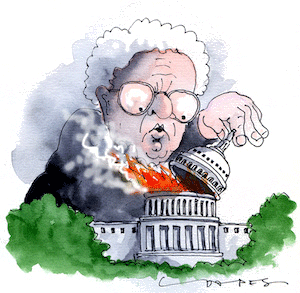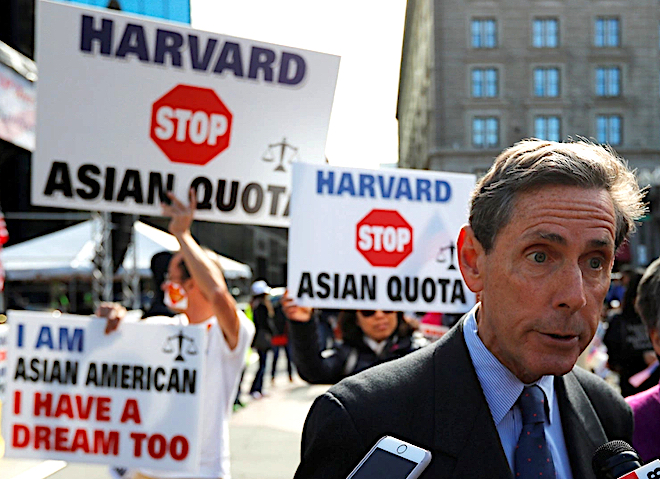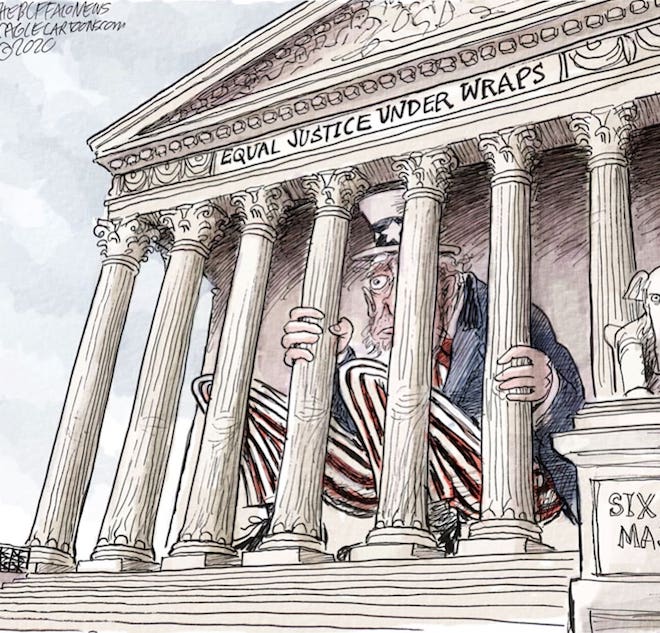he infallibility of SCOTUS
US Supreme Court makes it up as it goes along ... Contrived cases to fit a reactionary agenda ... Plaintiffs with no standing ... Further indulgence for religious discrimination ... Under-equipped judges on a rampage ... Roger Fitch reports from Washington
 The supreme court is in free-fall, an outlaw court making extrajudicial decisions. Spurious or controversial legal doctrines, some invented by the court, are deployed to achieve desired results: usually, the rolling-back of progressive legislation.
The supreme court is in free-fall, an outlaw court making extrajudicial decisions. Spurious or controversial legal doctrines, some invented by the court, are deployed to achieve desired results: usually, the rolling-back of progressive legislation.
A court that once heard 200 cases a year now hears less than 60, yet far from exercising any judicial restraint, the justices seem to relish "culture war" cases that fit the Catholic majority's rightwing agenda.
The cases that the court now agrees to hear, often manufactured by special-interest groups, are designed to give the conservative majority constitutional "cases or controversies" with which they can overturn policy decisions they dislike, and they're not afraid to manipulate standing and jurisdiction in order to hear them.
A common characteristic of these decisions has been the confusion they cause, but more than that, they bring into question the court's legitimacy. There's an apprehension that the court is becoming a super-legislative body from which there is no appeal, infallible because final, and it's borne out by the final decisions of this year's term:
Habeas corpus
The court began by dashing the hopes of prisoners, closing down appeals based on claims of actual innocence, in the appalling Jones v Hendrix, more here.
"Free speech" (faith-based discrimination)
The most shocking case of intellectual dishonesty was 303 Creative v Elenis, another "religious" attack on Colorado's anti-discrimination laws, the subject of last term's Masterpiece Cakeshop case.
Announced on the court's final day, 303 Creative presented a fabricated "controversy" with contrived standing.
Though dressed as a free speech case, it was designed to expand religious indulgence. It contains, moreover, the seeds of a new separate but equal doctrine in public accommodation law.
It also represents the first supreme court decision based on a hypothetical: the plaintiff suffered no injury. As Justice Gorsuch acknowledged in his majority opinion, the plaintiff had not yet offered the service of designing websites for weddings, but "she worries that, if she enters the wedding website business, the State will force her to convey messages inconsistent with her belief that marriage should be reserved to unions between one man and one woman".
The day before the decision was announced, it was revealed that the speculative projected harm had been based on an apparently forged email enquiry from a potential client, more here.
The alleged "offender" has come forward; he's married to a woman, doesn't know the plaintiff, and never sent the purported email seeking the preparation of a website for a gay wedding. In fact, he's a website designer with no need of such services.
 Blum: contrived a case to fit his anti-affirmative action agenda
Blum: contrived a case to fit his anti-affirmative action agenda
After 50 years, affirmative action in university admissions has been found unconstitutional. The case involved admissions at the Ivy League Harvard College and the "Public Ivy" North Carolina.
The case, cynically-contrived by the rightwing gadfly Edward Blum, produced a plaintiff in the Asian-based Students for Fair Admissions, which had no real standing: it failed to produce any Asian student alleging exclusion due to African-American or Hispanic preference - in fact, Asians make up 30 percent of Harvard graduates.
Justice Ketanji Brown Jackson, who's a Harvard Overseer, recused in Harvard, but she had a full-throated dissent in the UNC case. The Nation and TPM have more.
Republican-led states are meanwhile busy ending race-backed academic scholarships that supported their citizens of colour.
Another case in which the plaintiff had no colourable claim to standing was Biden v Nebraska, which invalidated a Biden executive order based on an identical emergency (Covid) and identical education legislation (HEROES) used successfully by Donald Trump.
The Higher Education Relief Opportunities for Students legislation gives the US Education Department special powers to change or waive rules of federal student loans to respond to a national emergency.
Trump's decision to change (defer) repayments was never questioned, and by any fair reading of the statute, the Department retains the power to waive student loan repayments.
Even so, Biden's regulations, using identical emergency powers and waiving individual repayments of up to $20,000 of student loan debt, were struck down, in a case brought by a plaintiff without standing or injury.
As one headline put it, "Supreme Court Decides Fake Plaintiffs Are Good Plaintiffs" and followed with this analysis:
"Approximately 43 million Americans were made between $10,000 and $20,000 poorer today (plus interest) thanks to six Republican lawyers from Harvard and Yale. They decided that a program based on a statute intended to modify student loan balances in the event of an emergency could not modify student loan balances in the event of the COVID-19 emergency. And they did it by claiming that a plaintiff was injured by this program, when that plaintiff did not petition the Court over its injury, had no involvement in the case, and would likely not be injured by the program."
Although the decision to offer debt relief was entirely beneficial and no student was injured, six Republican states banded together and agreed on a state plaintiff, Missouri, who asserted injury to an independent state body administering student loans, MOHELA, not a party to the lawsuit.
 From The Buffalo News
From The Buffalo News
None of the plaintiffs had standing, but the Republican majority on the court didn't let standing stand in their way; Missouri was found adequate for the policy reversal the court intended, based on the absurd claim of a hypothetical loss (of student revenue) by the state-chartered loan administrator.
In fact, MOHELA, an independent public entity, refused to participate in Missouri's case; any assistance was provided under legal compulsion. However, as Justice Kagan's dissent noted, MOHELA was the proper plaintiff. The state had no standing to even bring the case.
The court majority ultimately deployed the diabolical, recently-rediscovered "major questions doctrine" to strike down the Biden regulations. According to the Chief Justice:
"The authority to 'modify' statutes and regulations allows the Secretary to make modest adjustments and additions to existing provisions, not transform them."
It was a cruel and unnecessary decision. 25 million students applied for the $400 billion in debt relief offered. But, as NYRB observed, "The crimes of the rich are more readily forgiven than the debts of the poor".
≈ ≈ ≈
There was one bright note in the term's June decisions: the court ruled against North Carolina in the closely-watched Moore v Harper, the case testing the "independent state legislature" theory.
ISL posited that, in drawing federal election districts, the decisions of a state's legislature trumped its state constitution and court decisions interpreting it.
CJ Roberts found otherwise, with the conservative Justices Kavanaugh and Barrett joining the majority.
Many were pleased, but there are premonitions of future harm (e.g, in the 2024 elections).There's danger in any opinion that "vindicates" the dicta in the discredited and seldom-cited Bush v Gore.